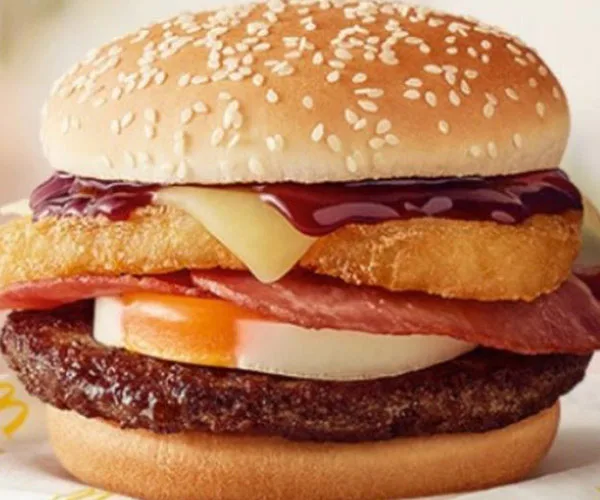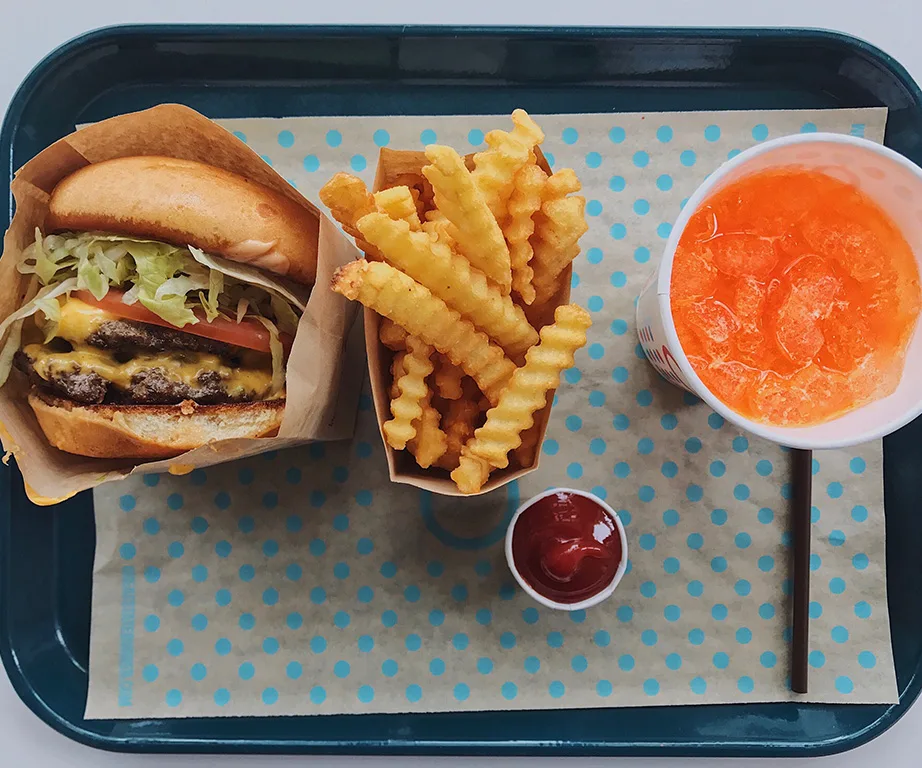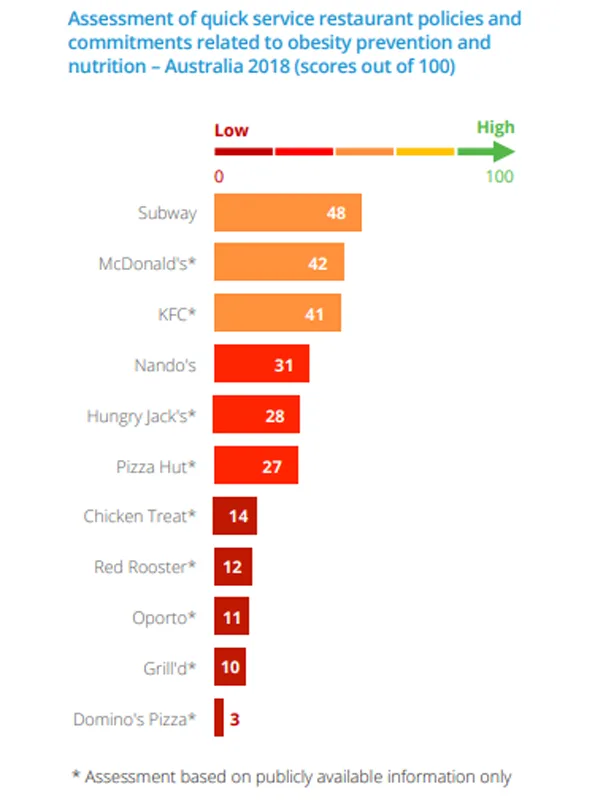When you pull up to the drive-thru window of a fast-food restaurant, you’re likely to know that your chips and burger meal deal isn’t going to be the healthiest food option on the pyramid.
And while we all like to indulge once in a while, in recent years fast-food chains have been marketing ‘healthier’ options on their menus, for instance McDonald’s advertise they have nine meals with the Heart Foundation tick of approval.

Researchers say fast-food chains aren’t doing enough to promote healthy eating.
However, a new report has found despite small changes to their menus, Australia’s most popular fast-food restaurants are doing very little to to promote health, and experts say they need to be more transparent about their nutrition policies and should commit to reducing salt, sugar and saturated fat.
In the report, ‘Inside our Quick Service Restaurants’ by Deakin University’s Global Obesity Centre, the top 11 Australia fast food outlets were scored according to their internal nutrition policies and what they are doing to address obesity prevention in Australia.

Not just the occasional indulgence! Australians spend around 32 percent of their food budget on takeaways and eating out.
The restaurants were given a score out of 100 based on six factors, including policies on marketing to children, disclosure of nutritional information on menus and online, plans to reduce “nutrients of concern” such as sugar and saturated fat, and a commitment to health in corporate strategy.
Subway topped the list scoring 48/100, with researchers suggesting it could do better by phasing out free soft drink refills. While Domino’s Pizza was the bottom of the pack with just 3/100.

Source: Deakin University
The report’s lead author Associate Professor Gary Sacks said Australians spend around 32 percent of their food budget on takeaways and eating out, which means the fast-food industry has a big impact on our diets. It seems the occasional indulge is more frequent than once though.
“Unhealthy diets are creating a public health crisis in Australia,” said Dr Sacks, who believes chains need to place emphasis on making healthy options easy and cheap, and not on offering deals for products that were full of sugar.
“The majority of items we see heavily promoted are unhealthy ones, like $1 frozen Cokes,” he added.
Researchers want to see chains marketing and promoting healthier options on the menu, and not just the high-fat favourites. They’ve suggested ‘healthy’ options, such as a water instead of soft drink with a meal deal should be the default order and not just an added option should the customer request it.
Furthermore, researchers want an overhaul of the calorie laden meal deals, to reduce their overall calories and sugar levels.
It’s easy to say people who order from a fast-food chain are making an active choice to eat a meal high in fat, salt and sugar.
But since fast-food chains are so often frequented because of their convenience (dotted on the side of every busy road!) perhaps chains should make ‘healthier’ options as easy, affordable and obvious as their high-fat options, so that Australians truly can have the choice.
.gif?resize=380%2C259)

